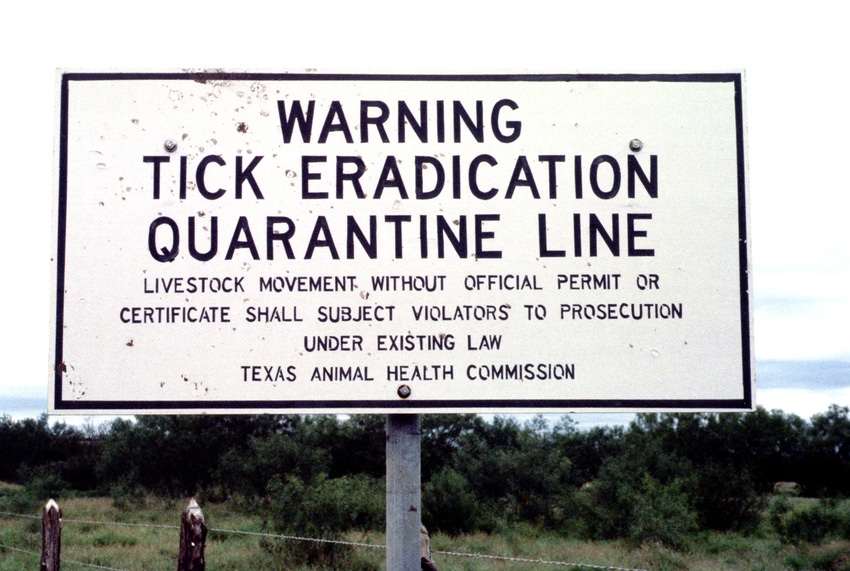New spraying system under development for cattle fever ticks
By reducing amount of fluid sprayed and wasted, new system should generate substantial cost savings and reduce health and environmental risks of controlling fever ticks.
January 8, 2020

The U.S. Department of Agriculture’s Agricultural Research Service (ARS), 4Ry Inc. and Texas A&M AgriLife Research have signed a collaborative research agreement to develop a means to more efficiently and effectively spray cattle and kill cattle fever ticks, according to an announcement from 4Ry, based in Albuquerque, N.M.
Cattle fever ticks are vectors of pathogens causing bovine babesiosis, also known as cattle tick fever, and are the focus of the U.S. Cattle Fever Tick Eradication Program, Texas AgriLife Research said.
Dr. Pete Teel, AgriLife Research entomologist, regents professor and interim department head for the Texas A&M department of entomology, will lead the project and provide administrative guidance. Field testing will be conducted by AgriLife Research and ARS at the USDA-ARS Cattle Fever Tick Research Laboratory in Edinburg, Texas.
The project will adapt 4Ry’s "Charge Injected Precision Spraying" (ChIPS) for conductive fluids. Many cattle pesticides are water based, which makes them conductive.
Dr. Arnold Kelly, 4Ry chief technology officer and co-founder, will modify the company's patented Spray Triode Atomizer, the heart of the ChIPS system.
Meeting all of the project milestones will document that the ChIPS system allows for more complete and targeted coverage of cattle with fewer environmental and operator health hazards, Texas AgriLife said. Charged spray droplets are attracted to the cow and thoroughly coat all areas, with little aerosol drift or overspray. By reducing the amount of fluid sprayed and wasted, ChIPS more efficiently covers cattle, generates substantial cost savings and reduces health and environmental risks, the announcement said.
“Successful development of our sprayer for conductive fluids will allow ranchers to integrate this technology for sustainable eradication of the invasive fever ticks that cost the cattle industry millions of dollars before they were eliminated from the U.S.,” 4Ry chief executive officer David Bird said. “The tick problem is particularly bad in south Texas counties that border Mexico. Our modified sprayer will also improve the management of other livestock pests, so it will be welcomed wherever those pests are found in association with cattle production.”
Teel added that Texas A&M AgriLife Research and ARS "have a long history of dedicated joint research efforts in support of the U.S. cattle industry and the regulatory agencies responsible for the U.S. Cattle Fever Tick Eradication Program. The opportunity to collaborate with 4Ry Inc. on the development and application of this new technology could significantly improve how cattle receive acaricide treatment to prevent the re-establishment of cattle fever ticks in the U.S.”
You May Also Like



